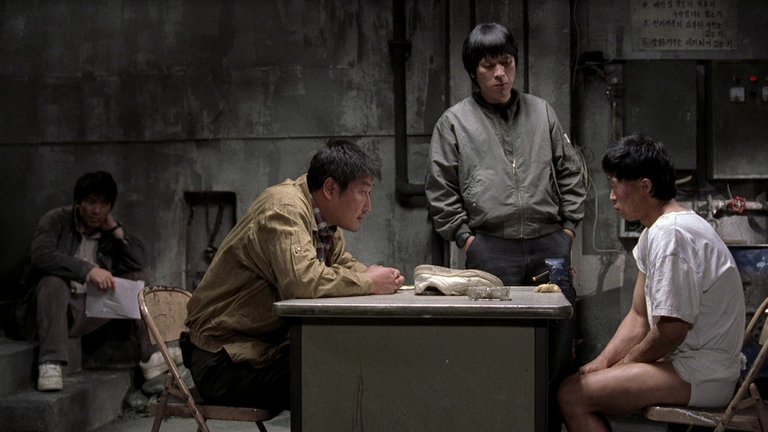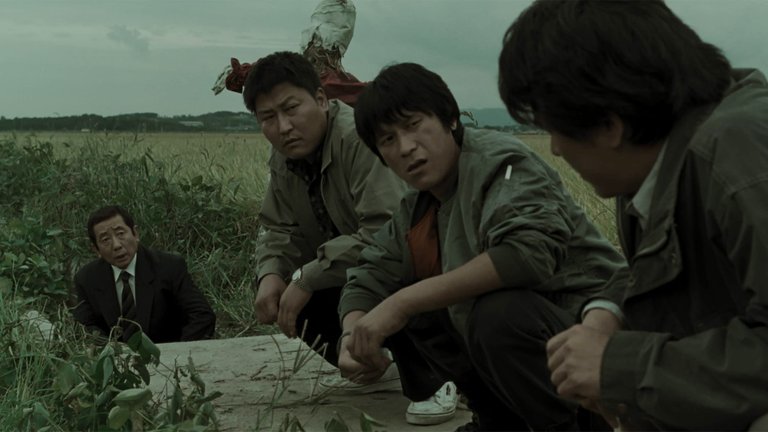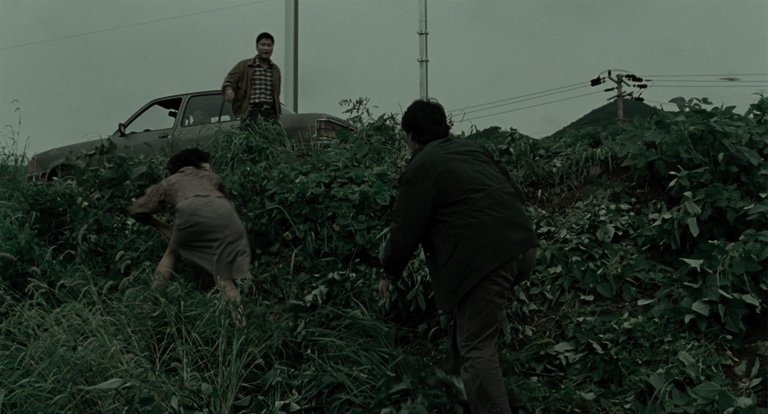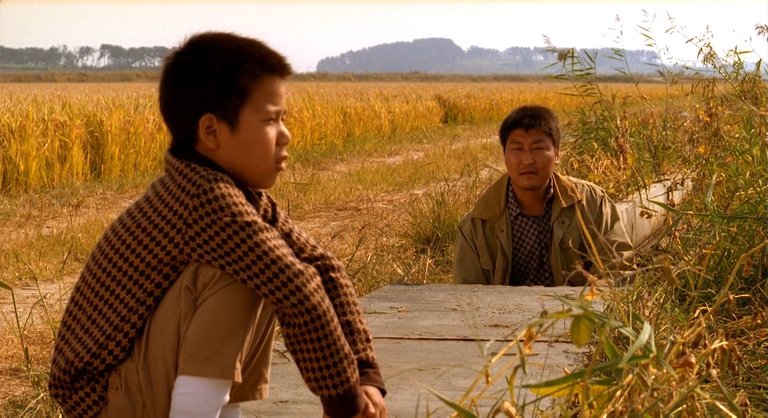Memories of murder - based on a true story, directed by Bong Joon-ho: a great thriller movie.

Source
Plot
1986, South Korea. The discovery of a barbarically raped girl's body in a tiny provincial town prompts an investigation by the inept local police, who are more interested in finding a scapegoat than the true perpetrator. Another victim is discovered a short time later, and an inspector from Seoul arrives to assist in the investigation and throw light on the mystery.
Why you should watch it?
- The characters: Two investigators with starkly opposing styles of investigation. The first is Park Du-man, a regime slave who is uninterested in the truth and willing to falsify evidence in order to fast seal the case. A detective whose investigative style is staring into a person's eyes as if it were a superpower to determine if he is lying or telling the truth.
Instead, Seo Tae-Yun, a young and ambitious investigator fresh from profiling school, arrives from Seoul to try to rationalize the case by studying the elements and looking for similar denominators across the many murders.
He is not a charming and brilliant Sherlock Holmes, but a regular and human investigator who is used to research and rationality.
The conflict between logic and impulsiveness, between conjectures and verifiable facts, is intense, and it leads to a confrontation between two detectives who are not cooperating in the hunt for the serial killer who going to strike.

Source
- A fake-truth: The investigative violence has become so intense that it has created a paradox. The suspects' statements are no longer valid since they are slavish repetitions of the truths that the detectives prefer to hear. As a result, nothing has any meaning anymore, and it's difficult to tell the difference between aspects of actual confession and others of forced identification in the quest to end the suffering. The authority constructs its false success, carefully mounts it, and even brags about it.
Without a specific investigative corps, forensics, or the ability to apply DNA testing, the investigation is conducted carelessly. An inquiry marked by the use of torture during interrogations is guided by gossip, prejudice, and improbable extrasensory powers.
The expert detective is the one who can recognize a tile of truth in the mosaic of fakes in this world confounded by armed force. In a circumstance that is gray and inaccessible to people seeking actual understanding, there is a spark of authenticity.
The spectator falls prey to the characters' utilitarian logic and occasionally believes he has discovered the guilty alongside them. The one with the unattractive face, the one who masturbates in the woods, the one who requests a song on the radio. They're the shattered crutches of an absurd reasoning that believes it can track down the killer by walking around the countryside.

Source
- The ability of Bong Joon-Ho:The tone of the picture, as well as the characters' personalities, shifts. At first, the investigators' mumbling is tinged with a dark sense of humour. Their ineptness is absurd and crazy, especially as seen through the eyes of Seo, the outsider. Bong Joon-ho, on the other hand, gradually guides his work into darker and more sad waters. In the end, not all of the victims are faceless, and there is at least one sequence (seen from the killer's point of view as he selects which of the two ladies to attack) when the tension reaches thriller levels. The seamless, unerring way the Korean filmmaker guides the narrative through swings in tone demonstrates his directorial skills.

Source
- The normality of life: The protagonists' backgrounds are hidden so that the key element is highlighted: normality. No character represents the hero or the anti-hero; none of them has a particular charisma that could distinguish them.
The normality of provincial life, the normality of those who hold power, the normality of people outside that environment, the normality of perversion, and the normality of the murderer's face. Murder is the only abnormal ingredient that, in a fully ordinary climate, among ordinary people, ends up becoming part of the everyday, in the routine of people who distrust the police more than their neighbors. The word "evil" itself becomes banal.

Source
Conclusion
Memories of Murder is a slow-paced film that seems more like a noir than a thriller due to its reliance on hints and atmospheres. The slow descent of its characters into infatuation with the murderer, as well as the open and unfinished finale, foreshadows another cornerstone of the serial-killer genre, David Fincher's Zodiac (although here the finale is more philosophical and less unexpected in my opinion, and provides an overview of the idea the director has of life). On top of this,it is also based on a true story, which makes it even more fascinating.
In all regards, this is a must-watch movie, that has a lot of perks and almost any defects.
Rating
My personal vote is:
9.0/10

Thank you for your review. This looks like an interesting movie!
If you haven't joined us on Discord we would love to have you join the family: https://discord.gg/GFpP4yKG
Yay! 🤗
Your content has been boosted with Ecency Points, by @aurzeq.
Use Ecency daily to boost your growth on platform!
Support Ecency
Vote for new Proposal
Delegate HP and earn more